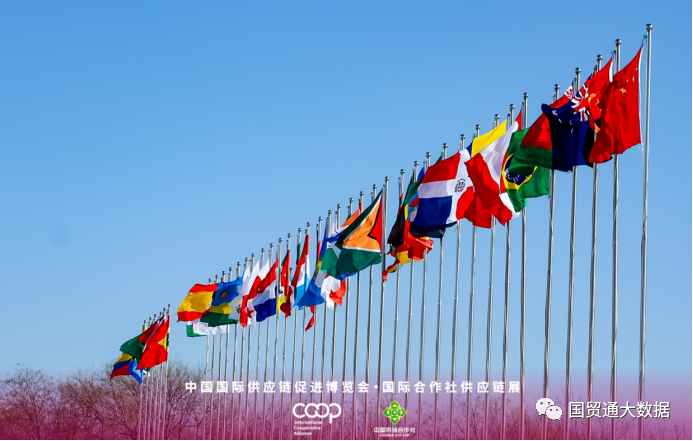
Latest global economic and trade news
“According to Global Times citing foreign media, Japanese Prime Minister Shigeru Ishiba said in a TV interview on the 6th that he would not "easily compromise" in tariff negotiations with the United States. He also stated that Japan has made significant investments in the U.S. economy and should be treated differently from other countries.”
Economic News
According to Global Times citing foreign media, Japanese Prime Minister Shigeru Ishiba said in a TV interview on the 6th that he would not "easily compromise" in tariff negotiations with the United States. He also stated that Japan has made significant investments in the U.S. economy and should be treated differently from other countries.
(China Financial News)
On the 4th, the Cambodian government announced that it had reached an agreement with the United States on tariff negotiations. A joint statement on "reciprocal tariffs" will be released soon, although specific details such as tariff rates remain unclear. Following Vietnam, Cambodia has become the second Southeast Asian country to reach a tariff agreement with the Trump administration.
(Reference News)
On the 4th, India notified the World Trade Organization that it plans to impose retaliatory tariffs on the United States due to the impact of U.S. tariffs on automobiles and auto parts on Indian exports. Recently, India and the U.S. have held consultations on tariffs, but have failed to reach consensus on issues such as agriculture and dairy products.
(CCTV News)
On the 4th, U.S. President Donald Trump signed the "Big and Beautiful" Tax and Spending Act into law. This landmark legislation extends and expands the tax policies of Trump’s first term, adjusts federal spending, and signals the direction of his second-term governance.
(The Paper)
According to data released by the German Federal Statistical Office on the 4th, due to a sharp drop in domestic demand, Germany’s industrial new orders in May fell by 1.4% month-on-month after seasonal and calendar adjustments. The German Federal Ministry for Economic Affairs and Energy stated that due to trade and geopolitical uncertainties, future demand may remain volatile, and a further slowdown cannot be ruled out.
(CCTV News)
Commodities
July 4th is U.S. Independence Day. While fireworks are traditionally a part of the celebration, this year, U.S. tariff policies have raised the cost of fireworks for consumers. According to U.S. Census Bureau data, over 95% of fireworks sold in the U.S. are imported from China, including almost all aerial shells and handheld fireworks. Industry experts believe that U.S. tariff policies have "lit the fuse of uncertainty"—if no agreement is reached, the cost of fireworks may surge in the future.
(CCTV News)
A report released by the Cambodia Rice Federation on the 3rd shows that in the first six months of this year, Cambodia exported over 387,000 tons of rice, with total export value reaching $283 million, marking a year-on-year increase of more than 14.5%. Cambodian rice was exported to 63 countries and regions worldwide in the first half of the year, with China being one of the major export markets.
(China News Service)
Russia, the world’s largest wheat exporter, will reduce its wheat export tax to zero starting July 9. This is the first time the tax has been lifted since its introduction in 2021. The move aims to protect the domestic market from surging prices and to curb excessive exports. In January, the wheat export tax hit a record high of 4,699.6 rubles ($59.87) per ton.
(Yicai Global)
On the 5th, OPEC+ issued a statement announcing that it will increase oil production by 548,000 barrels per day in August. The organization had already increased production by 411,000 barrels per day in May, June, and July. In March, eight oil-producing countries decided to gradually increase output starting April 1, rolling back their voluntary production cuts.
(China Financial News)
Global Perspectives
Germany's Handelsblatt published an editorial on the 6th stating that negotiations between the EU and the U.S. on a new round of trade arrangements have entered a critical stage. Germany and Italy, due to their reliance on exports, favor an early agreement, while France, Spain, and Denmark express concern over potential concessions. Divisions within the EU regarding trade with the U.S. are becoming increasingly apparent, slowing negotiation progress and casting doubt on the outlook.
(CCTV News)
On the 3rd, IMF spokesperson Kozack stated that the so-called "Big and Beautiful" Tax and Spending Act will further widen the U.S. fiscal deficit. Reducing the fiscal deficit is key to stabilizing the U.S. debt-to-GDP ratio, and the earlier action is taken, the more room there will be for adjustment. In recent years, the IMF has consistently recommended that the U.S. address the deficit through increased taxation, but this new legislation continues and expands on the tax-cutting policies of Trump’s first term.








